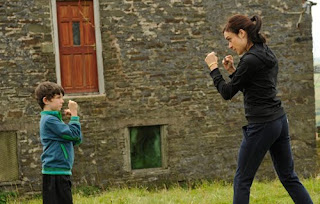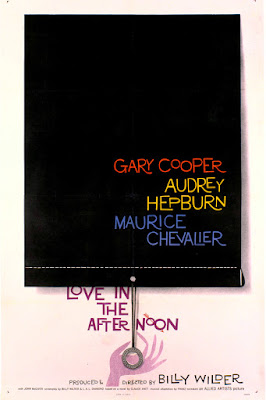Released in 2012 by Sky Atlantic, Hit & Miss is a six-part series starring Chloe Sevigny as Mia, a transgender hit woman who discovers she has a son from a previous relationship. With her former lover dead from cancer, Mia discovers she has been designated as the guardian of her four children. The show chronicles Mia's attempts to balance her career with her new responsibilities.
This show is like an indie movie extended over six episodes. It is a testament to the writing and direction that it never feels dragged out or too concise.
What is most interesting is the show's tone.
The assassination sequences are spare and vaguely surreal -- they are reminiscent of sequences from Jim Jarmusch's Ghost Dog, Seijun Suzuki's Branded to Kill or Irving Lerner's Murder by Contract. On the other hand, the scenes with Mia and the family feel like something out of a British kitchen sink drama.
Somehow it all fits together elegantly. What could have been a hodgepodge of different genres and tones instead feels like a complete whole. The show operates almost like a fairytale in terms of its logic, and yet it feels weirdly grounded
Mia's gender never feels like a gimmick or a eccentric add-on. Neither is it foregrounded in an obvious or exploitative way. What's refreshing is how matter-of-fact the portrayal is. There are scenes of nudity, but they are treated in a rather straightforward fashion. There is no dancing around with Mia's body, but there is no emphasis or sensationalism to the way it is portrayed. It is one of the best examples of the show's focus on extremely functional story-telling.
This is true of the series' more disturbing elements. Running alongside Mia's storyline, the relationship between her (unofficial) step-daughter Riley (Karla Crome) and local farmer/shit head John (perennial heavy Vincent Regan) is played out in an unflinching manner that manages to avoid descending into feeling exploitative.
Acting by the entire cast is great. Chloe Sevigny underplays her role, dodging the potential of turning Mia into some kind of super heroic other, and turns Mia into a vulnerable, empathetic head of the family.
Overall, Hit & Miss is a really unique and engrossing watch. It's a singular experience -- I've never seen anything quite like it, and it is highly unlikely there will be anything else like it on TV again. And considering just how good TV is nowadays, that is saying something.

























